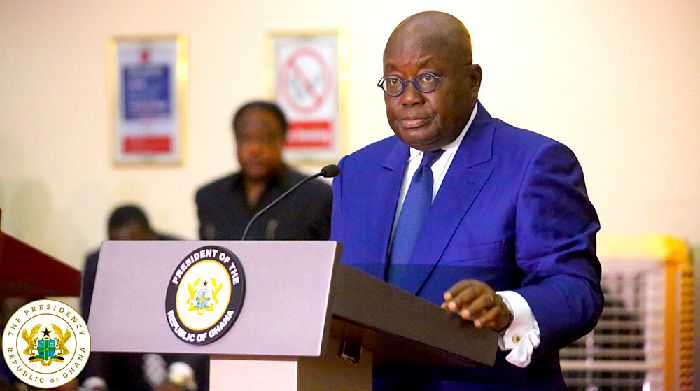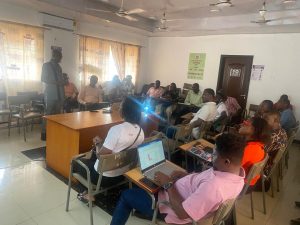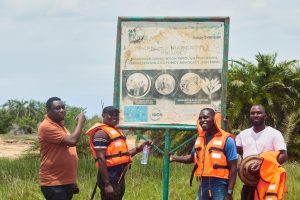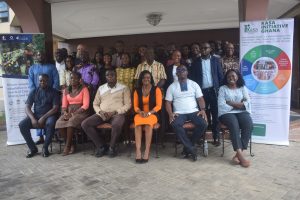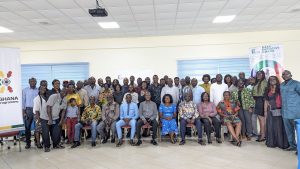President Nana Addo Dankwa Akufo-Addo yesterday launched the National Plastic Action Partnership (NPAP) with the conviction that it will be a game-changer in the management of plastics in the country.
He said it would lead to the promotion of green alternatives, nurture the development of new business models for job creation throughout the value chain and develop systems and infrastructure across the country to ensure that the waste was turned into value added products.
The partnership, the first in Africa and the second in the world after Indonesia, is a collaborative work among the government of Ghana, the World Economic Forum, under its Global Plastic Action Partnership (GPAP), and other stakeholders.
The GPAP aims to create a world free of plastic pollution and ensure that plastics are manufactured, used and re-used in a sustainable way.
It is co-founded by Coca-Cola, Pepsi Cola, Nestle and the governments of Canada and UK and hosted by the World Economic Forum.
Ghana was selected as the first African country to join the partnership because many of its existing initiatives are in line with the GPAP’s aims, which include the National Plastic Management Policy and the approaches that are currently in progress in Ghana.
President Akufo-Addo expressed confidence that through the partnership with GPAP, progress would be fast-tracked in Ghana “towards that collective goal, which is to achieve zero leakage of plastic waste into our oceans and waterways”.
Pledge
Addressing the gathering, which included captains of industry, members of the Diplomatic Corps, chief executives of waste management companies and leaders of international organisations, President Akufo-Addo pledged the full commitment of the government towards the successful implementation of the programme that would be outlined under the partnership.
He said his administration considered the plastic menace as a serious matter, and that was why he charged the Ministry of Environment to develop a strategy to deal decisively with the issue, which strategy had attracted the attention of the global community.
He said Ghana’s plastic management policy did not only focus on how to address the use of plastic waste but also took a holistic view of the entire value chain of plastic and how to achieve several objectives, including the development of a working circular economic framework for plastics in Ghana.
“While the eventual outcome of the NPAP will be owned by the people of Ghana, it is my expectation that its example will contribute to the resolution of this problem on the African continent and be a shining example of the global achievements of GPAP,” he added.
He commended private sector operators for building plastic waste recycling plants to create bio-fuels that were being used as alternatives to fossil fuels that polluted the environment and produce building blocks used to construct roads and pavements.
Civil Society
The President commended civil society and the media for their efforts at raising awareness of efficient waste management and existing opportunities for waste recovery in the country and gave an assurance that the government was ready to partner all stakeholders, especially the private sector and academia, to drive investment and research in the area of plastic waste management.
He called for significant behavioural change to stop the damage to the environment and expressed delight over the prominence that had been given to the implementation plan of the draft National Plastics Management Policy.
President Akufo-Addo commended the UNDP for facilitating the establishment of the Waste Recovery Platform for Ghana and the governments of the UK and Canada for their commitment and financial support for the GPAP initiative.
Minister
The Minister of Environment, Science, Technology and Innovation, Prof. Kwabena Frimpong-Boateng, said over 3,000 tonnes of waste from plastics was generated across the country daily, which constituted about 14 per cent of the entire municipal solid waste accumulated in the country.
He added that within the Accra Metropolitan Area, including the Accra-Tema coastline areas, 35.6 per cent of the total waste was plastics and between two and five per cent of waste from plastics was collected for recycling, which was almost entirely performed by the informal sector.
He said when fully implemented, Ghana’s policy would unlock economic incentives for source separation, collection, processing and recycling of plastic waste into valuable resources and generate revenue estimated at $400 million per year.
Source: graphic.com.gh

